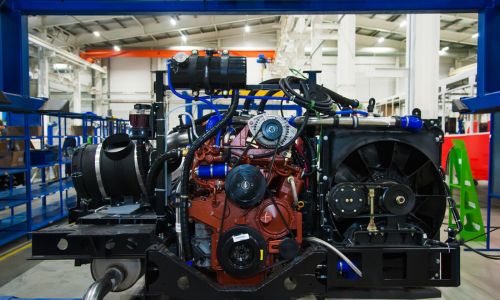Washington D.C. – U.S. Senator Katie Britt (R-Ala.) recently joined a bipartisan coalition of her colleagues in proposing legislation aimed at modernizing and streamlining the domestic bus manufacturing industry. Senators Tina Smith (D-Minn.), Kevin Cramer (R-N.Dak.), and John Fetterman (D-Penn.) teamed up with Senator Britt to introduce the Bus Rolling Stock Modernization Act, a move designed to address outdated regulations imposed by the Federal Transit Administration (FTA) that have hindered the efficiency and competitiveness of the industry.
The current regulatory framework, which dates back four decades, imposes cumbersome payment practices on bus manufacturers and purchasers, leading to inflated costs and market instability. As a consequence, many domestic bus manufacturers have faced financial challenges, with some even forced to exit the market altogether, despite sustained demand for new vehicles.
The proposed legislation seeks to alleviate these issues by granting bus manufacturers the flexibility to apply for advanced payments of up to 20%. This financial support would enable manufacturers to invest in the necessary labor and machinery required to meet the demands of transit agencies while simultaneously keeping production costs manageable.
Senator Britt expressed her support for the bipartisan initiative, emphasizing its potential to bolster domestic manufacturing and enhance the capacity of local transit agencies to serve their communities effectively. She highlighted the importance of ensuring reliable transportation options for Alabamians, regardless of their geographic location or economic status.
Her sentiment was echoed by Senator Smith, who underscored the vital role that transit systems play in connecting individuals to essential services and opportunities. The proposed legislation, she argued, represents a sensible and pragmatic approach to modernizing regulations and supporting U.S. bus manufacturing jobs.
Senator Cramer emphasized the economic benefits of the proposed reforms, noting their potential to stimulate investment and job creation within the bus manufacturing sector. He cited specific examples, such as Motor Coach Industries in Pembina, North Dakota, as beneficiaries of the proposed changes.
Similarly, Senator Fetterman emphasized the positive impact that the legislation would have on transit agencies across Pennsylvania, particularly those serving rural and underserved communities. By providing greater flexibility in bus procurement, the bill aims to enhance the efficiency and effectiveness of transit services statewide.
Overall, the bipartisan effort to reform bus manufacturing regulations represents a concerted attempt to address longstanding challenges within the industry while promoting economic growth and job creation. As the legislative process unfolds, stakeholders will be closely watching to see if the proposed reforms garner widespread support and ultimately lead to meaningful change.












